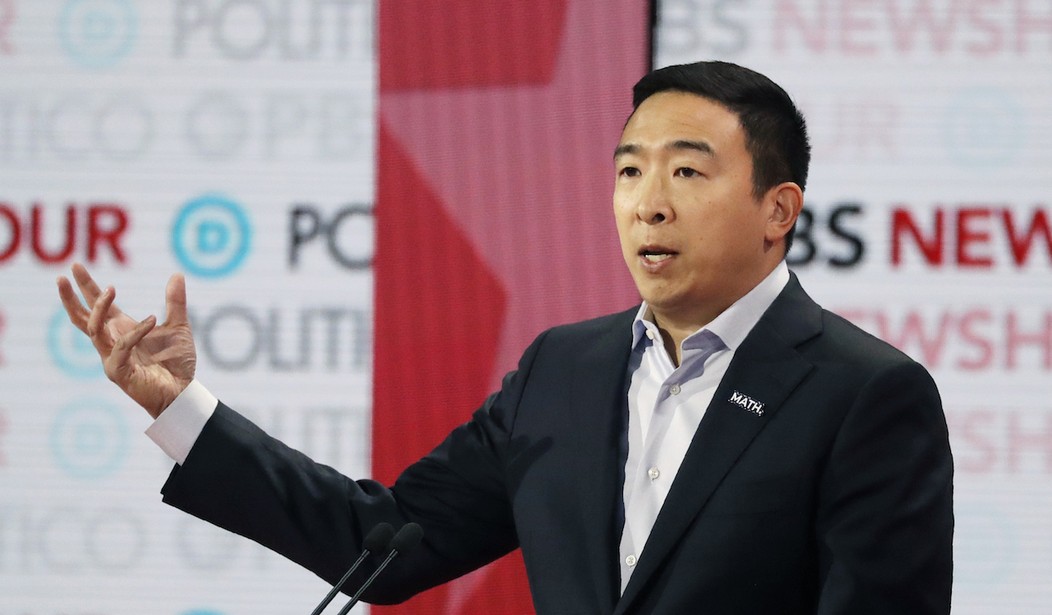We still don’t know who the next Mayor of New York City will be, but we at least know one person who is out of the running. Andrew Yang, who made a serious bid for the presidency, was at one time seen at the favorite to replace Bill de Blasio. He was leading in the early polls and generating a lot of buzz. The media couldn’t get enough of him and his rallies featured speeches where he promised all manner of marvels and wonders for the City That Never Sleeps once he was in City Hall. But then something happened. He began to slide in the polls, soon falling behind Eric Adams and then a few others. By the time the polls closed on election night, Yang had come in fourth and he was the first candidate to concede. So how did it all go so wrong so quickly? That’s the question that the New York Times attempts to sort out today. Yang appeared to have everything going for him, but in the end, he just didn’t know how to close the deal.
[Andrew Yang’s] collapse was a result of an accumulation of factors: self-inflicted wounds, a perception that he was out of his depth, and the city’s changing environment.
The pall that had fallen over New York had started to lift: Mr. Yang had campaigned on reopening the city, but the city had reopened without him. And now New Yorkers seemed far more worried about crime, an ideal scenario for Mr. Adams, a former police captain and the current Brooklyn borough president.
Mr. Yang tried to change his message and tone, but the shift was too late and seemed to alienate some of his core followers.
We should probably first say that we still don’t know definitively how much Yang lost by. We don’t really know if he lost at all because we still have the Gang That Couldn’t Shoot Straight attempting to count the ballots. (They managed to dump more than 100,000 dummy ballots into the mix this week.) For all I know, Yang actually won. But let’s move on.
Giving credit to the New York Times, I think they identified one of the biggest among the many factors that led to Yang’s political demise. He came in with a ton of star-power, but that only takes you so far in a crowded field of wannabes. The initial excitement he generated was largely based on the fact that he wasn’t running against the other candidates so much as he was running against the pandemic and the shutdown of the city. But as the virus receded from people’s minds, their thoughts turned to the alarming uptick in violent crime around Gotham. People were less worried about going out and catching COVID than they were worried about going out and catching a bullet or getting carjacked. And that opened the door for former policeman Eric. Adams.
But that wasn’t the only way that Yang slipped. He delivered a number of self-inflicted wounds. His outreach to Black and Latino voters was sporadic and seemed almost comical at times. The phrase “trying too hard” comes to mind. He was also running on a promise of a basic income guarantee like the one he touted during the presidential campaign. But it was far more modest than the one he pictured for the entire nation and he never explained how he would pay for it when the city couldn’t even afford to pay all of its cops.
Yang also quickly began developing a reputation for just being out of touch with average New Yorkers. When he released a video of a local “bodega” it immediately became obvious that he had no idea what a bodega is. The linked article also reminds us that Yang had the eyes of many voters rolling when he complained about having to spend so much time at his second home up in the Hudson Valley, arranging online classes for his children while fitting in time to do appearances on CNN. The sympathy for his plight wasn’t exactly filling the streets.
There were plenty of other stumbles along the way, many of which you can read in the Times piece. But more than anything else, again, it just seems that we witnessed a relative neophyte of a politician who mastered a great opening act, but had no clue where to go after that. He was the shiny new thing at the beginning, saying what the people wanted to hear. But then the political landscape began to change and he didn’t know how to react. And the harder he tried, the more he made it obvious that he was trying too hard. New Yorkers tend to notice things like that and they have long memories. So congratulations on a good effort, Mr. Yang, but I just don’t think you were “New York enough” for New Yorkers.








Join the conversation as a VIP Member